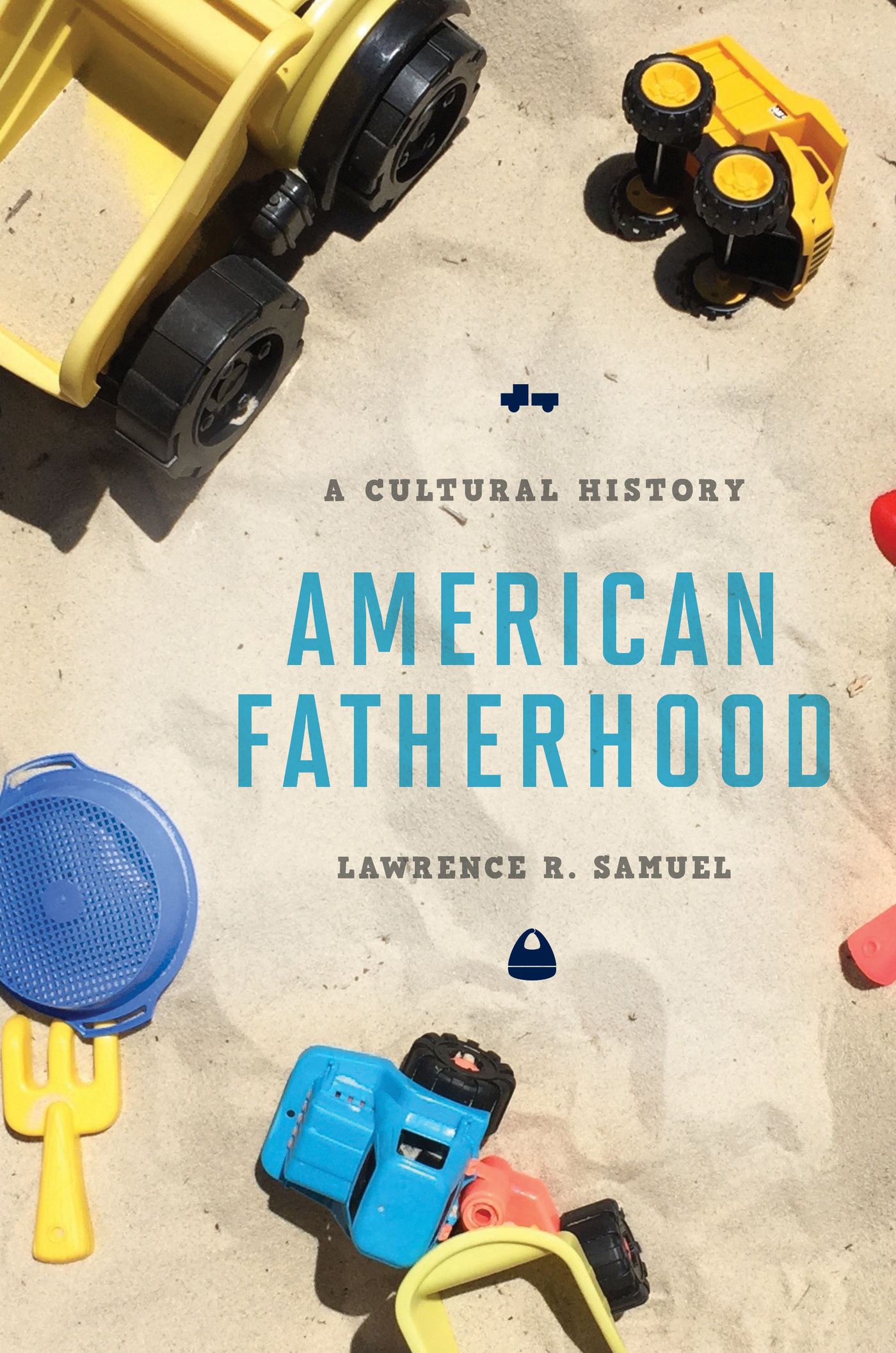American Fatherhood
American Fatherhood
A Cultural History
Lawrence R. Samuel
ROWMAN & LITTLEFIELD
Lanham Boulder New York London
Published by Rowman & Littlefield
A wholly owned subsidiary of
The Rowman & Littlefield Publishing Group, Inc.
4501 Forbes Boulevard, Suite 200, Lanham, Maryland 20706
www.rowman.com
Unit A, Whitacre Mews, 26-34 Stannary Street, London SE11 4AB,
United Kingdom
Copyright 2016 by Rowman & Littlefield
All rights reserved. No part of this book may be reproduced in any form or by any electronic or mechanical means, including information storage and retrieval systems, without written permission from the publisher, except by a reviewer who may quote passages in a review.
British Library Cataloguing in Publication Information Available
Library of Congress Cataloging-in-Publication Data
Samuel, Lawrence R., author.
American fatherhood : a cultural history / Lawrence R. Samuel.
pages cm
Includes bibliographical references and index.
ISBN 978-1-4422-4810-6 (cloth : alk. paper) ISBN 978-1-4422-4811-3 (electronic)
1. FatherhoodUnited StatesHistory. 2. FathersUnited StatesHistory. 3. FamiliesUnited StatesHistory. I. Title.
HQ535.S255 2016
306.874'2dc23
2015024844
 TM The paper used in this publication meets the minimum requirements of American National Standard for Information Sciences Permanence of Paper for Printed Library Materials, ANSI/NISO Z39.48-1992.
TM The paper used in this publication meets the minimum requirements of American National Standard for Information Sciences Permanence of Paper for Printed Library Materials, ANSI/NISO Z39.48-1992.
Printed in the United States of America
To Freya
Preface
American Fatherhood is largely the result of my becoming a first-time father at an age when most men are seeing their kids (finally!) leave home. Researching the book would be an excellent way to learn much about the dos and donts of fathering, I figured soon after having a child, viewing the writing of a cultural history of the subject as a way to draw upon the wisdom of people much wiser than myself.
My own journey to being a mostly full-time dad reflects the transformation of fatherhood in recent decades and demonstrates how having a child can alter ones personal identity and sense of masculinity. Many of the themes in this book resonate with my (limited) experience of fatherhood, making it worthwhile to add a brief personal dimension to the story. A confirmed bachelor, I had no intention of ever becoming a father, seeing parenting as more of a burden than anything else. Well into my fifties, I cherished my freedom and viewed any kind of long-term commitment and responsibilities as things to avoid at all costs. But a few years after meeting the one, who was significantly younger than I and was keen on having a baby, the idea of being a father began to seem not entirely terrible. How many times can one go out to dinner? I asked myself, with a growing sense that there was something missing in my life. In fact, embarking on something new and different for the third and final act of my life sounded rather appealing, my last chance to be part of something larger than myself. We decided to try to have a baby and within two months my then girlfriend was pregnant. My voyage to fatherhood had begun.
Just as many other dads-to-be have reported, the reality that I would likely soon be a father was simultaneously thrilling and terrifying. I had spent little time with kids and was never especially comfortable around them. I did not even understand why so many adults chose to have children, thinking the latter to be basically short, not very smart people. Learning my child was going to be a girl was a real shock, as the kids in both my immediate and extended family were almost all male, so I rather foolishly just assumed she would be a boy. Given that I was going to be a complete novice, however, I came to like the fact that a girl was on the way, as having a daughter would make parenthood even more of a foreign and, hopefully, interesting experience. I began to study children and their parents wherever I might see them, trying to get some sense of what it would be like to be a dad. Over time, I warmed up to the prospect of joining the paternal club and became increasingly enthused (and anxious) as the big day approached.
My future daughter was less than enamored of leaving her dark, warm place and entering this world, however, even as my girlfriend reached full term, so the doctors decided to pluck her out on the very last day possible. On January 26, 2012, I became a first-time father at age fifty-five, my third act now in play. It takes time for some men to warm up to their babies, but I was in love with my daughter the second I laid eyes on and held her in the OR. She looked like both my mom and dad, for one thing, making our relationship love at first sight, at least for me. She, on the other hand, cried and cried for hours after being taken out of her safe cocoon, not at all happy to be brought to this brightly lit and loud place. We left the hospital in a couple of days, beginning our new life together as a family.
It is difficult now to remember much of anything for the first six months of having my child, natures way perhaps of protecting new parents from any long-term trauma. I did night feedings as mom initially needed to recover from the delivery and, in a couple of months, return to work as her maternity leave ended. (As a writer, I could sleep when the baby slept.) I do recall bonding with my daughter over this period, however, as little can compare with holding and feeding an infant in the wee hours of the morning while the rest of the world (except other new parents!) sleeps. All the usual thingsa smile, a laugh, or simply direct eye contactworked their neurochemical magic, and I was even more hooked.
Over the next few years, she and I became partners in crime, often engaging in the rough-and-tumble sort of play that makes moms very nervous. Its immensely fun to watch her grow up and develop a real personality, much more so in fact than when she was a baby and could not walk or talk. (A typical guy thing.) I find my daughter genuinely hilarious, and I am continually amazed at her observational skills and how perceptive she is, often more so than I am. Sharing what are for her first-time sensory experiencesseeing her own shadow, smelling rain, tasting chocolateserve as welcome reminders of the wonders of the natural world. An unprompted, matter-of-fact I love you, dad is the highlight of my day, as annoying as that may sound to those who have not experienced such a thing. The reluctant father had morphed into an avid one, enjoying every minute (well, not quite every minute, given the sheer determination of any three-year-old) spent with this precious thing. I may not possess some of the childcare abilities of my now wife, but I am certain I contribute in important, unique ways that will help my daughter grow up to be a confident adult. Guiding her through what is to her a brand-new world has allowed me to see many things with fresh eyes, a wonderful gift. I have no doubt that my own father loved me, but he was a product of his generation; I am far more ready, willing, and able to express my emotions with my childa good thing, I think, for each of us.
I freely admit my experience as a parent so far reads precisely like the cloying clich I despised when I was living the high life. While I do not have the energy I used to, being an older dad has allowed me to relish our time together. Bestowing as much love to her as possible is clearly my number one priority, with my career and social life mostly distant, happy memories at this point. The ability to scribble a few lines every day or go out for the occasional beer is actually infinitely more pleasurable now that each has become somewhat of a luxury. I could go out more, but Id simply rather be with her (and I am too exhausted to do anything after she goes to sleep). Dont get me wrong: I miss the adrenaline rush that comes with making a mark in the world through work, and I definitely miss the parties and mayhem that came with being single. But the love one feels for a child simply outweighs and overpowers everything else in its pathagain, likely a trick of nature designed to protect and benefit a completely dependent human being. More than that, the love that comes from and is given to a child is pure and unrequited, unlike any other kind a person can experience (including that to or from a spouse).
Next page
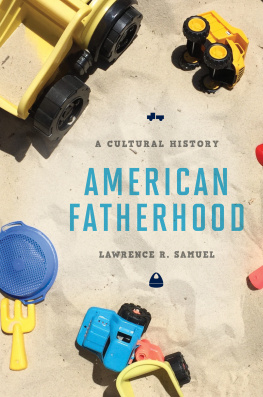
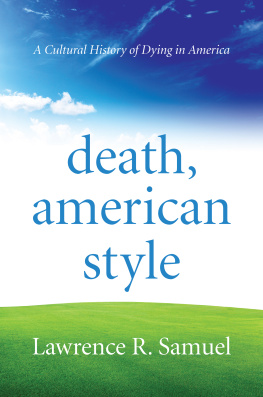
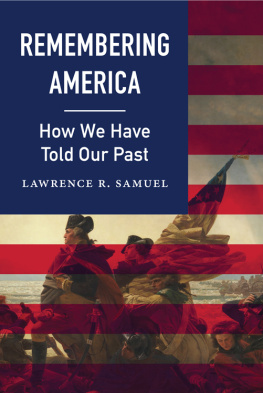
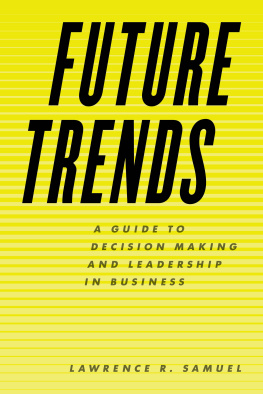
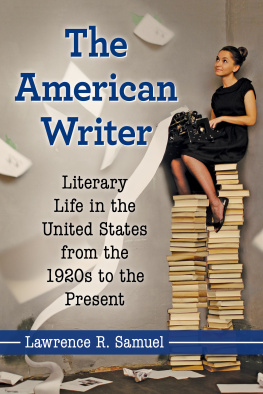

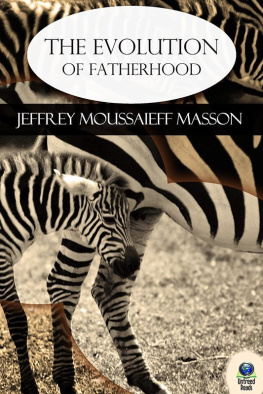
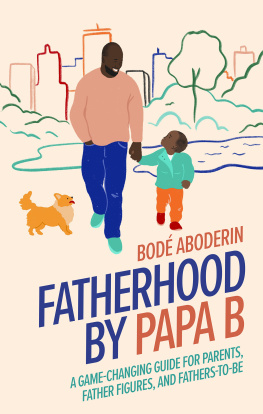
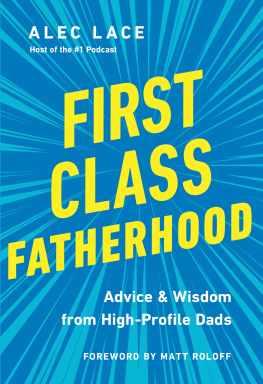
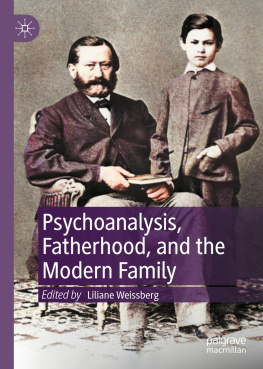
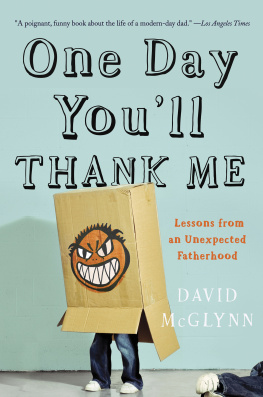
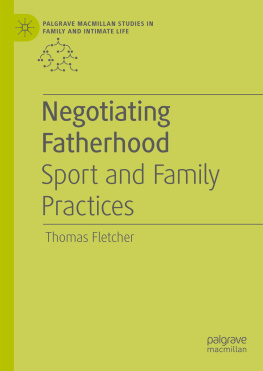
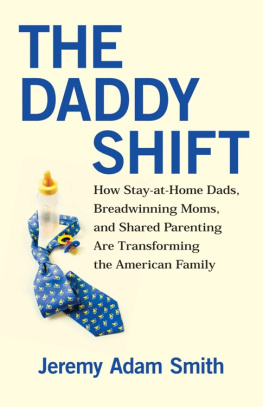
 TM The paper used in this publication meets the minimum requirements of American National Standard for Information Sciences Permanence of Paper for Printed Library Materials, ANSI/NISO Z39.48-1992.
TM The paper used in this publication meets the minimum requirements of American National Standard for Information Sciences Permanence of Paper for Printed Library Materials, ANSI/NISO Z39.48-1992.